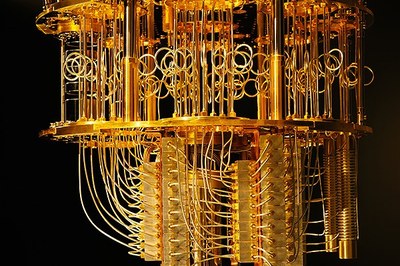Quantum Simulations for Energy Storages

(Copyright © IBM)
Innovations, such as new materials or medicine, are mainly based on trial-and-error. However, this needs a lot of resources and usually many attempts fail until the intended goal is reached. Nowadays, we can use computer simulations to speed up research. Yet, many processes are too complex to simulate them with a classical computer. Especially, the simulation of atomic processes, such as in chemistry, is very challenging. Quantum computers can solve particular problems faster than classical computers. Thus, simulating chemical processes with quantum computers seems to be a very promising task for the future.
The project QuEST is dedicated to explore the use of Quantum computers for exploring new Energy storages with innovative Simulation Techniques. In this project, we work together with the DLR Institute for Technical Thermodynamics and the Fraunhofer Institute for Mechanics of Materials. The Institute of Quantum Technologies investigates the implementation of quantum algorithms with noisy intermediate-scale quantum computers. The project is financed by the ministry for “Wirtschaft, Arbeit und Wohnungsbau Baden-Württemberg” with 1.5 million euros and uses the IBM quantum computer of the Fraunhofer-Gesellschaft situated in Ehningen.
